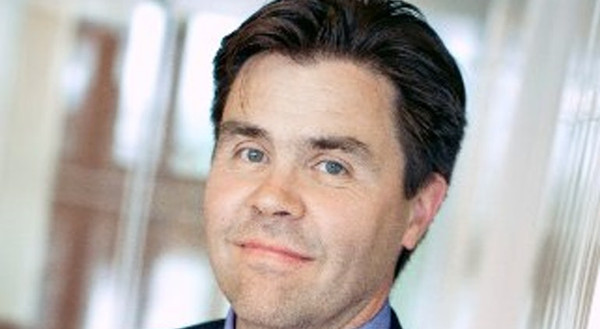"It is important to ensure that nuclear energy is treated on an equal footing with other low-carbon energy sources by EU decision makers," says Esa Hyvärinen, the new president of Brussels-based industry group Foratom. Nuclear, he says, will play an important role in meeting the bloc's climate targets.

Foratom President Esa Hyvärinen (Image: Foratom)
Hyvärinen's appointment as president of Foratom began on 1 January this year and will run for two years. He is head of the CEO's office at Finland's Fortum Corporation, whose subsidiary Fortum Heat & Power owns and operates the Loviisa nuclear power plant.
Speaking in an interview with Spain's nuclear industry forum Foronuclear, he said: "The recognition of nuclear energy by the European Commission in its 2050 long-term strategy was an important sign for us. However from a nuclear industry standpoint the question is how this recognition will be reflected in particular EU legislative files, such as the European Green Deal or the Sustainable Finance taxonomy regulation."
The European Union's key climate targets for 2030 are: an at least 40% reduction in greenhouse gas emissions (from 1990 levels); an at least 32% share for renewable energy; and an at least 32.5% improvement in energy efficiency. In its longer-term strategy, the EU aims to be climate-neutral by 2050.
Hyvärinen said that if the EU is to achieve its 2050 zero-carbon target, then its current 2030 CO2 reduction targets may not be enough.
"We therefore support the Commission's goal of raising this target, as long as it leaves Member States free to choose their own low-carbon energy mix. Expecting them to reduce their greenhouse gas emissions, whilst at the same time preventing them from investing in specific low-carbon technologies such as nuclear, would be counter-productive.
"Foratom believes that the European Union, in order to achieve its 2050 decarbonisation goals, needs all low-carbon energy sources, including nuclear energy. This will enable the bloc to achieve a sustainable and low-carbon future while at the same time providing people with reliable and affordable electricity."
However, Hyvärinen said Foratom will not push for more favourable legislation for nuclear power, compared with other low-carbon energy sources.
"What is important, is the treating all low-carbon energy sources equally, which is not always the case, in spite of even the European Commission describing nuclear energy as the backbone of the 2050 carbon-free Europe, together with renewables."
He noted that several EU Member States have made their commitment to more ambitious CO2 reduction targets conditional upon being able to invest in new nuclear power. "This trend shows that more and more Member States consider nuclear energy to be an important tool in counteracting climate change and see a bright future for it in the EU."
He added, "I am optimistic as long as decision makers rely on the opinion of experts who are analysing the current situation and recommending how the world can fulfill the Paris Agreement's promise. The UN's IPPC has made it clear that nuclear power is essential if the world is to keep global warming to below 1.5 degrees. We have to choose the best tools available today as renewables alone cannot solve the climate crisis and betting too much on CO2 emitting gas could also have harmful lock-in effects in the long term. That's why, low-carbon, flexible nuclear must form part of the energy mix."
Hyvärinen said Foratom will continue highlighting all the features of nuclear energy that can contribute to meeting the European Union's climate goals, the development of its economy and to the achievement of other goals.
Researched and written by World Nuclear News